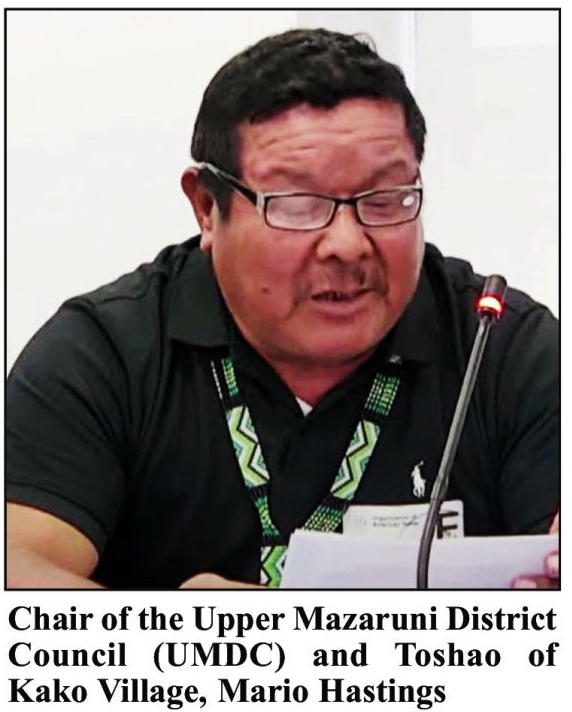As part of their efforts to exercise their right to self-determination and autonomy, the Indigenous Peoples of the Arecuna and Akawaio villages attended the first quarterly statutory meeting of the year, held from March 22 to 27 and the devastating effects of the drought was one of the issues addressed.
A release from the Upper Mazaruni District Council (UMDC) stated yesterday that the meeting saw the assembly of representatives from eight Region Seven villages, Paruima, Waramadong, Kamarang-Warawatta, Kako, Jawalla, Phillipai, Omenaik/Kambaru, and Chinoweing for three days of discussions related to challenges and achievements in the district.
Some of the key points that emerged from the discussions were 1) the need for urgent attention to address the devastating effects of drought on the livelihoods of Indigenous Peoples in the district; 2) Concerns raised by representatives from Chinoweing, Omenaik, and Jawalla, regarding violations of land rights, particularly concerning miners encroaching on sacred sites; 3) environmental concerns stemming from gold and diamond mining activities; 4) limited access to essential social services; 5) Socio-economic challenges; 6) the inherent need for a transparent National Toshaos election process, free from political interference; 7) The need to have UMDC formally gazetted; 8) Guyana and Venezuela Border concerns; 09) Projects update, including the mapping and monitoring of mining activities in the Upper Mazaruni, and 10) the recently facilitated Amerindian Act capacity-building sessions.
The Council noted, “These deliberations underscored the gravity of the challenges facing the Upper Mazaruni District and highlighted the collective determination to address them effectively.”
Also present at the assembly were representatives of the Amerindian Peoples Association (APA),
Forest Peoples Programme (FPP), and Hughes, Fields & Stoby. APA’s GIS technician gave a presentation on the 1959 Arecuna-Akawaio Territory, FPP lawyer, Lan Mei, presented the intricacies of the ruling in UMDC’s land case. Attorney-at-law, Nigel Hughes, provided an update on the appeal of the court case related to land rights. He also reaffirmed his firm’s pro bono support for the Indigenous Peoples of Upper Mazaruni.
UMDC also signed a Memorandum of Understanding (MoU) with the Amerindian Peoples Association (APA), thereby securing technical and financial support from the Association. This agreement, the release explained, will allow the UMDC to benefit from the necessary resources in order to implement and execute activities and general capacity building. The MoU was signed by Toshao Mario Hastings, Chair of the UMDC, and Lemmel Thomas, President of APA.







